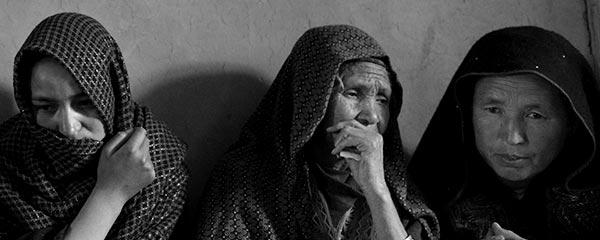While the U.S. and Afghanistan focus on ongoing peace talks with the Taliban in Qatar, the murders of three female journalists in Jalalabad last week illustrate how high the stakes are for those who are not at the decision-making table but have a vested interest in the outcome -- Afghan women.
In many ways, Afghan women are less hopeful about their future today than they were a decade ago. While Afghan women have made significant gains in civil rights and education in that time, in 2019, their ratings for where they see their lives in the next five years were more than three points lower than they were 10 years prior -- standing at 2.3 on a scale of zero to 10, where 10 is the best possible life.
However, men are also less optimistic about the future than they were a decade ago -- underscoring the uncertainty that hangs over all Afghans, regardless of gender. The trajectory for men has followed a path similar to women's over the past decade, and they've been even less optimistic at several points along the way.

Alt text: Line graph. This is the trend line for where Afghan women and Afghan men see their lives in five years, based on a scale from zero to 10, where 10 is the best possible life.
Some of women's loss of hope may be related to the fact that fewer women feel like they have control over their futures. Afghan women in 2019 were less than half as satisfied with the freedom they have to choose what they do with their lives as they were in 2008. Slightly more than three in 10 (31%) Afghan women were satisfied with their lives in 2019, compared with the 66% who said so a decade earlier.
Notably, Afghan women are not alone in feeling this way. As their country has been marred by violence and political turmoil, Afghan men were also less likely to feel satisfied with their freedom in 2019 than they were a decade ago. However, the decline has been sharper for women, and Afghan men have consistently been more satisfied with their lives than their female counterparts.

Alt text: Line graph. This is the trend in how satisfied Afghan women and men are with the freedom to choose what they do with their lives from 2008 to 2019.
In addition to feeling less satisfied with their freedom to choose what they do with their lives, Afghan women today are also less likely to feel that they are treated with respect than they were a decade ago. A record-low 42% of Afghan women said they felt treated with respect the day before in 2019 -- down from 64% in 2008.

Alt text: Line graph. This is the trend for whether Afghan men and Afghan women felt treated with respect all day the previous day to the survey, from 2008 to 2019. The 42% of women treated with respect was a record low for Afghan women.
Bottom Line
Continuing violence and insecurity, along with food insecurity and declining economic opportunity, have contributed to Afghans losing faith in their nation's future. Despite their gains, Afghan women still have fewer job opportunities than men, and most Afghan women have only a primary school education. These limitations continue to put Afghan women in a most vulnerable position in their society.
As the U.S. government and the Taliban negotiate peace, questions remain regarding the future of gender equality and women's rights in the country. After four decades of war and social upheaval, the need for peace and security in Afghanistan is paramount to all Afghans, but the interests of the country's women also need to be represented in the negotiations.
Khorshied Samad is the Principal Communications Advisor at Â鶹´«Ã½AV. Khorshied was a former ABC News reporter and FOX News Bureau Chief in Kabul, Afghanistan, from 2002-2004.
Julie Ray is the Managing Editor for Global News at Â鶹´«Ã½AV.
Learn more about how the works.




